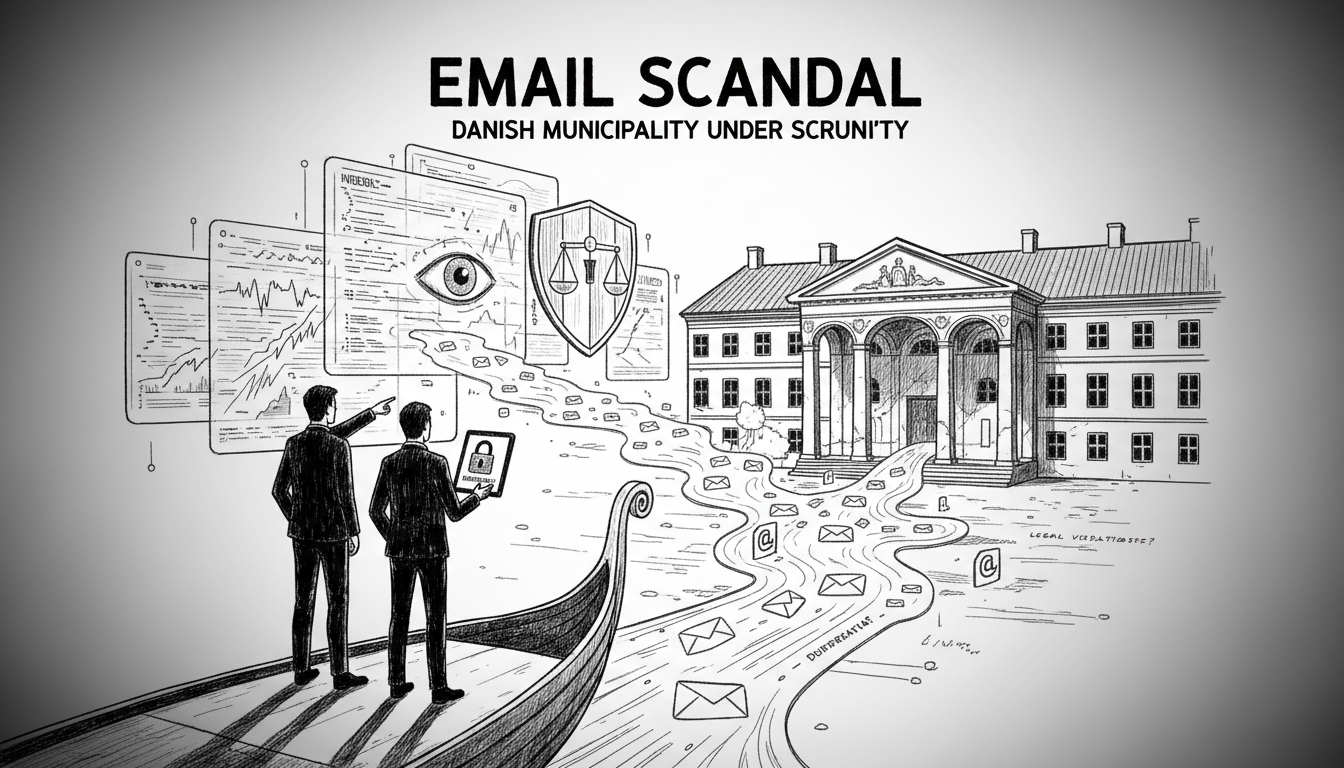Rudersdal Municipality faces intense scrutiny today as local council members demand answers about potential illegal email surveillance. The controversy centers on whether municipal administration scanned politicians' emails without proper authorization while investigating a leaked confidential report.
The scandal erupted when documentation revealed the administration conducted email scans searching for "TV2.dk" references in messages sent to and from municipal employees and politicians. This scanning occurred before obtaining necessary legal permissions. Multiple legal experts now suggest these actions may violate Danish law.
Social Democratic mayoral candidate Anette Maj Billesbølle expressed deep concern about the situation. She stated the need for clarity about whether officials accessed her emails before she granted permission. When administration lacks proper authorization, such actions become unlawful, she emphasized.
The case has triggered serious political consequences. Deputy Mayor Jens Kloppenborg, who also serves as the Liberal Party's mayoral candidate, has filed a formal police complaint against the municipality. He cited violations of constitutional communication privacy protections. Our entire democracy stands at risk if I cannot converse with citizens and journalists without administration looking over my shoulder, he declared. This represents a very serious matter.
The timeline reveals troubling details. Municipal Director Birgitte Lundgren emailed council members on January 19 requesting consent to review their emails regarding the leaked report investigation. Billesbølle provided consent. However, internal emails show the municipal director ordered the IT chief two days earlier to examine sent and deleted emails of 32 individuals. She issued a counter-order ninety minutes later when legal authority for such actions was lacking.
Legal expert Frederik Waage, a professor of administrative law at the University of Southern Denmark, has reviewed key documents in the case. He concludes the municipality likely broke the law. The municipal director declined interview requests, issuing only a written statement questioning Waage's knowledge of specific circumstances. She noted the police investigation prevents further comment.
Mayor Ann Sofie Orth also refused interview requests, writing she wasn't informed about email scanning activities. She expressed full confidence in municipal leadership and awaits police investigation results calmly.
The scandal emerges during local election campaigning, creating political complications. Billesbølle suggested Kloppenborg's timing with the police report relates to electoral considerations, while Kloppenborg maintains he acted upon a whistleblower's information in early November. He asserted he had no choice but to report potentially illegal activities in his municipality.
This case highlights the delicate balance between administrative authority and democratic transparency in Danish local government. Similar email surveillance concerns have surfaced in other Nordic municipalities recently, suggesting systemic challenges in adapting digital investigation methods to existing legal frameworks. The outcome could set important precedents for how Scandinavian governments balance leak investigations with privacy protections.
Police in North Zealand continue their investigation while political pressure mounts for administrative review. Billesbølle anticipates further developments, noting neither political nor police processes have concluded. She hopes authorities treat the matter with appropriate seriousness while maintaining current confidence in both mayor and municipal director.
The situation demonstrates how digital governance issues increasingly test Scandinavian democratic institutions, where high public trust in government traditionally coexists with strong privacy expectations. As Danish municipalities digitize operations, clear boundaries between legitimate administration and citizen rights protection become increasingly crucial.

